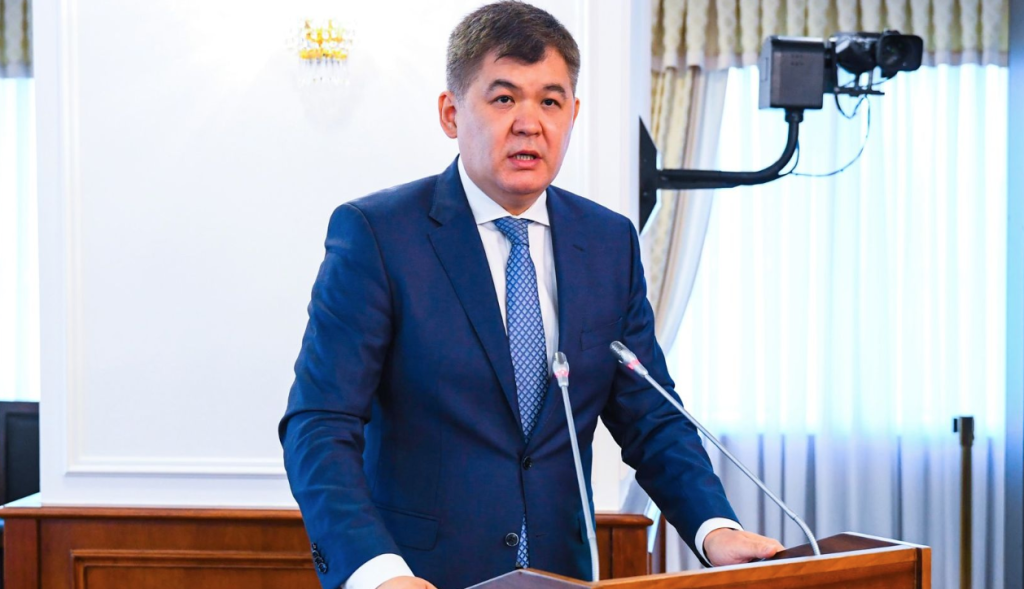ASTANA – The number of Kazakh citizens diagnosed with cancer increased 9.5 percent in 10 years, while mortality rate from the disease declined by 28.5 percent, said Minister of Healthcare Yelzhan Birtanov in a June 25 report.
The nation’s cancer rate is currently estimated at 199.1 per 100,000 people.
“Based on the results of 2017, more than 35,000 people were diagnosed with cancer in 2017. To date, there are 171,813 people diagnosed with cancer,” he said.
The most common types of the disease are breast cancer (13.8 percent), lung cancer (11.8 percent) and stomach cancer (8.6 percent). Though the mortality rate has declined, cancer remains the country’s second leading cause of death behind cardiovascular diseases.
Early-stage diagnosis is estimated at 24.7 percent, compared to 80 percent in Organisation for Economic Co-operation and Development (OECD) countries.
“Despite the measures taken to organise oncological treatment, a diagnosis of cancer at the early stages remains low. The figure is three times lower than in the countries of the Organisation for Economic Co-operation and Development,” he added.
The main factor inhibiting cancer detection and treatment efforts is the low rate of participation in the screening programme across the country, noted Birtanov.
While the World Health Organisation advocates screening as one of the key methods to detect cancer at its early stage and recommends reaching 70 percent of the target population to increase the effectiveness of the measures, less than half of the Kazakh population has the necessary tests.
Kazakh hospitals currently offer three types of voluntary cancer screenings – breast cancer screening for women age 40 and older, cervical cancer screening for women beginning at age 30 and colorectal cancer screening for men and women age 50 and older.
“Medical information systems are poorly integrated and there is also lack of access to high technology diagnosis methods and innovative treatment, including radiation therapy. According to the data of the ministry, less than 30 percent of cancer patients in Kazakhstan receive radiation therapy,” said Birtanov.
The ministry is currently working to introduce IBM Watson for Oncology, an artificial intelligence system that provides recommendations and individual treatment methods based on data analysis and access to oncology expertise and foreign medicine literature.
The comprehensive plan adopted during the government meeting also seeks to improve preventive measures and control risk factors, including tobacco and alcohol consumption, achieve a higher rate of early detection, digitise treatment facilities and improve the staff and research base. Kazakhstan will allocate an additional 35.12 million tenge (US$103.25 million) for these measures, said Birtanov.
“Private investments will be attracted to implement the comprehensive plan. With that purpose, we plan to purchase 149 equipment items using the public private partnership mechanism. The preliminary cost of the project exceeds 40 billion tenge (US$117.6 million),” he added.
In modernising and improving cancer treatment, Kazakhstan seeks to achieve OECD country standards.
“First, it includes increasing the detection of precancerous lesions in screening for cervical cancer by 0.6 percent and colorectal cancer (also known as bowel cancer) by 23 percent by 2022. Secondly, we plan to increase detection of cancer at early stages up to 33.5 percent, including cervical cancer by 65 percent, breast cancer by 45 percent and colorectal cancer by 25 percent,” said Birtanov.
The measures also seek to decrease the advanced cancer rate by 7.2 percent and extend five-year survival among patients by 60 percent.

